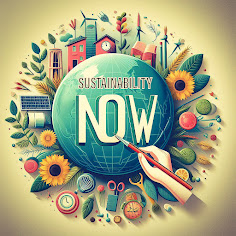Beyond Empty Plates: Building a World Where Hunger is History
Imagine a world where children's laughter erupts not from rumbling tummies, but from full bellies. Where families don't face the agonizing choice between sending their children to school or feeding them. Where vibrant communities thrive, nourished by not just food, but by access to sustainable systems that ensure everyone has a seat at the table. This is the world envisioned by the United Nations Sustainable Development Goal 2: Zero Hunger.
Hunger, however, is not merely a matter of empty stomachs. It's a gnawing shadow that casts a long, debilitating reach. It stunts children's growth, weakens immunity, and dims the light of potential. It shackles families in cycles of poverty, hinders access to education, and steals the dignity of life. According to the United Nations, nearly 690 million people still experience hunger, a reality that demands immediate and comprehensive action.
But tackling hunger is not about simply filling plates, it's about transforming the very fabric of our food systems. This means embracing sustainability, not just as a buzzword, but as a guiding principle. Imagine fertile fields teeming with diverse crops, nurtured by practices that respect the earth. Picture farmers, empowered by knowledge and fair trade policies, cultivating abundance without depleting resources. This is the vision of sustainable agriculture, where we nourish the planet while it nourishes us.
At the heart of this vision lies biodiversity. Monoculture farms, devoid of life's vibrant tapestry, are vulnerable to pests and diseases, ultimately yielding less. Embracing a symphony of crops, from grains to legumes to vegetables, creates thriving ecosystems, resilient to shocks and brimming with nutritional diversity. The work of Navdanya in India, reviving biodiversity and empowering small farmers, stands as a testament to the power of diversity in fostering abundance.
Yet, this transformation cannot happen without supporting the hands that feed us. Small-scale farmers, the backbone of global food security, often face unfair trade practices, lack of access to resources, and inadequate infrastructure. Empowering them with fair prices, land security, and training in sustainable practices is not just an ethical imperative, it's a strategic investment in our future. The success of Ethiopia's Homegrown Transformation Plan, supporting small farmers and boosting agricultural productivity, showcases the transformative potential of empowering these vital actors.
But the journey to Zero Hunger demands not just looking at production, but also at consumption. Food waste, an unconscionable reality in a world where millions go hungry, squanders precious resources and undermines our efforts. From farms to supermarkets to our own kitchens, minimizing waste through improved storage, innovative recycling, and responsible consumption patterns is critical. Initiatives like Denmark's "Surplus Generator," connecting restaurants with food banks, demonstrate the power of innovative solutions to tackle this issue.
Finally, achieving Zero Hunger is not a solitary endeavor, it's a global symphony demanding the harmonious engagement of governments, NGOs, businesses, and individuals. Increased investments in research and development, robust public policies, and collaborative partnerships are essential to accelerate progress. From local community gardens to multinational corporations adopting sustainable practices, every action, every voice, every choice resonates across the global food system.
The path to Zero Hunger is paved with challenges. Climate change threatens crops, conflicts disrupt supply chains, and ingrained inequalities persist. But within these challenges lie seeds of hope, waiting to blossom. By embracing sustainable practices, empowering farmers, minimizing waste, and forging global partnerships, we can rise to the challenge. Let us envision a future where hunger is not a birthright, but a relic of the past, where every plate brims with abundance, and every table welcomes everyone to share in the feast.








